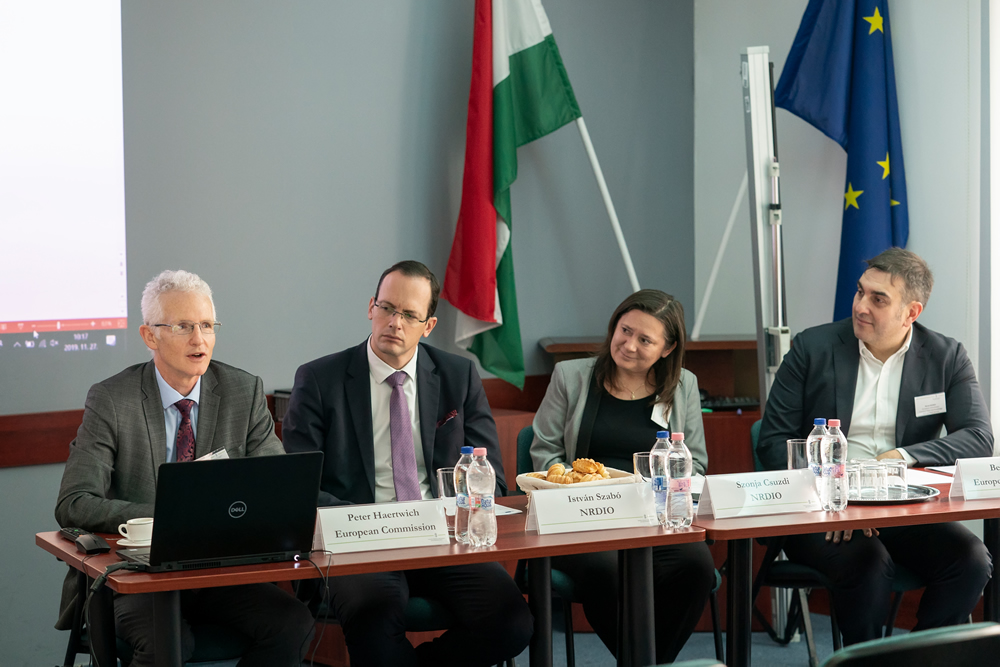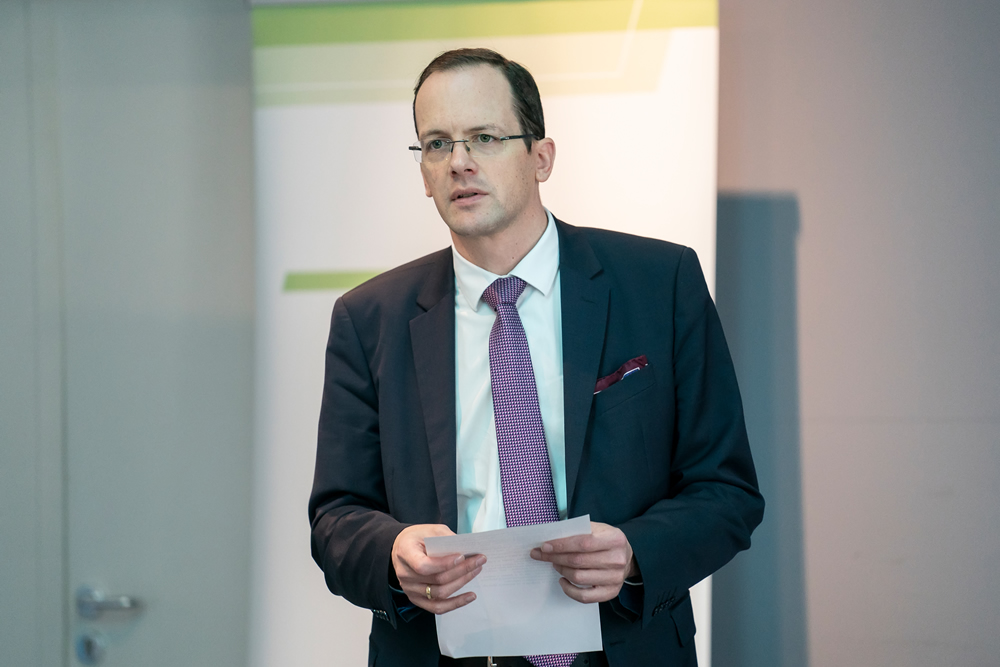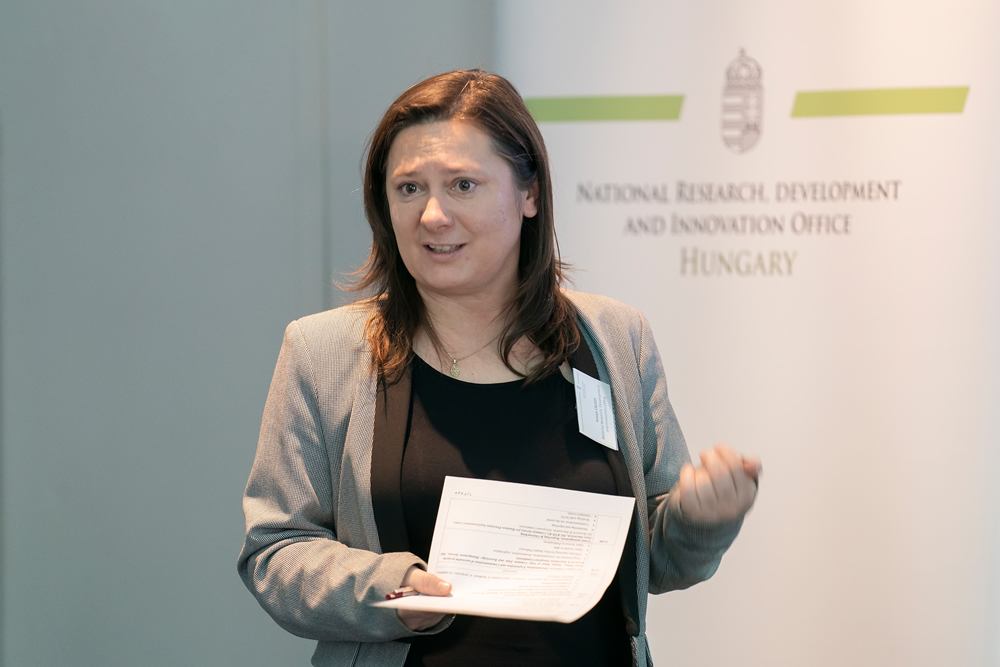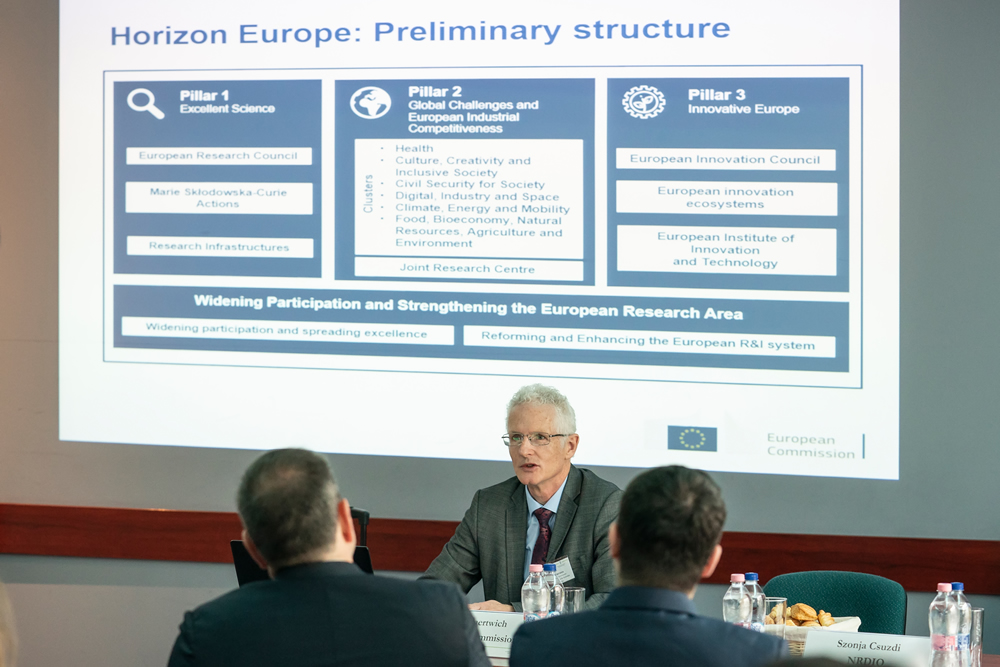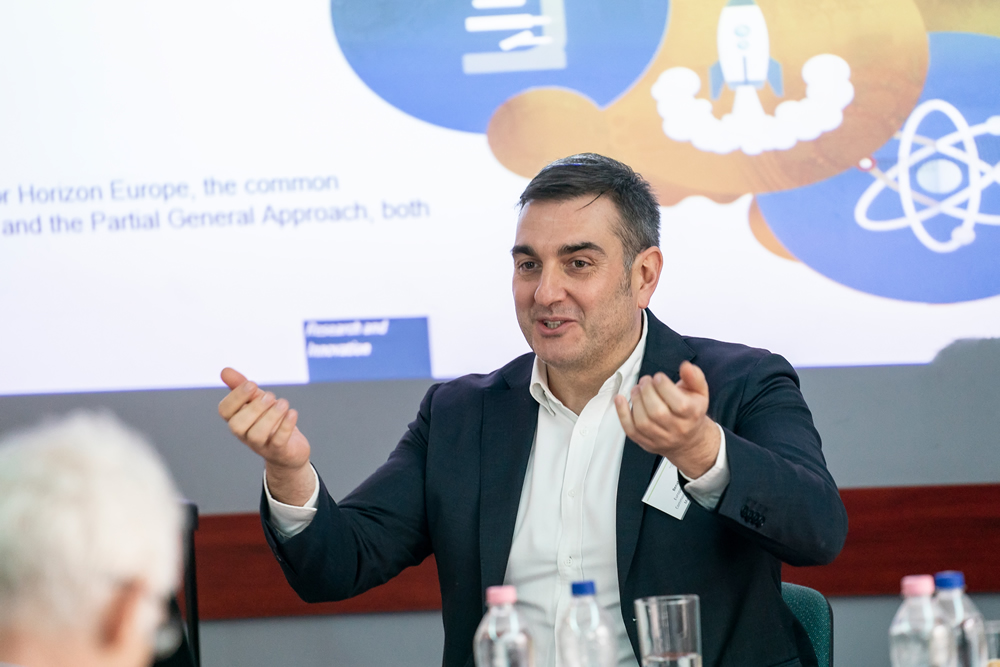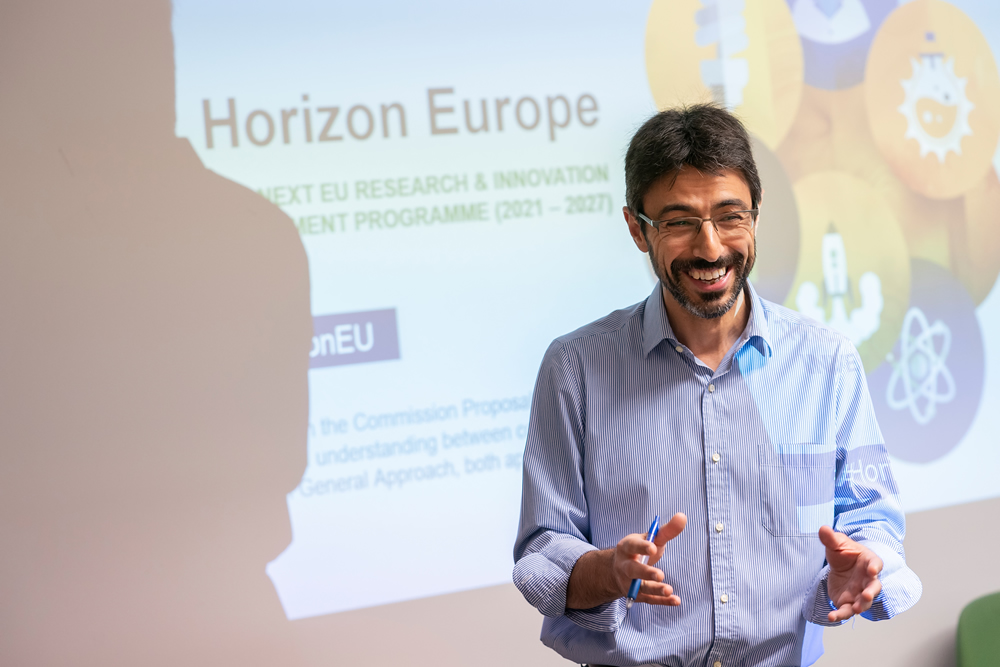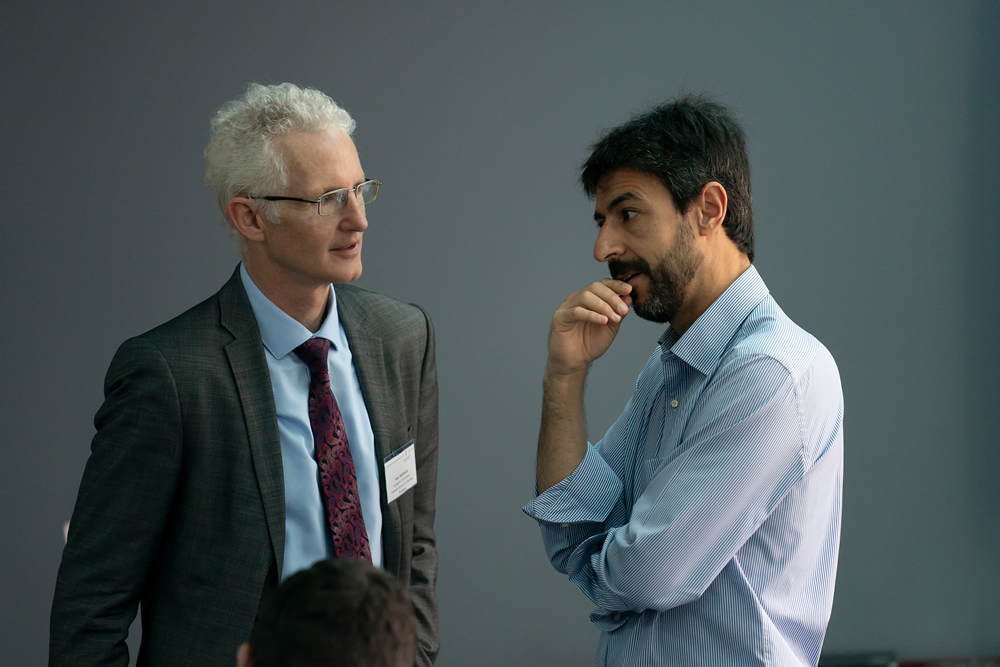An important objective of the event was to provide an opportunity for a constructive exchange of ideas between the competent staff of the European Commission and the representatives of the most active national applicant institutions.
In the morning section Peter Haertwich, the Head of Unit of the DG for Research and Innovation of the European Commission presented the new features of the Horizon Europe framework programme, including new types of missions, reflecting an impact-oriented approach, a new approach to partnerships co-financed by EU Member States and industry, a greater emphasis on the principle of open science and a closer monitoring of the impacts of projects. According to plans 3.3% of the total budget i.e. more than the current level, is planned to be spent on “widening” actions, which aim to promote the involvement and broader participation of Member States with a lower level of innovation performance, which is a positive change from the perspective of Hungary. More specifically, in addition to the Teaming, Twinning and ERA-Chairs actions well known from the Horizon 2020 programme, new instruments are also planned to be introduced, such as for example the Hop-on-scheme, i.e. the possibility to join an already winning consortium, the piloting of the ‘blind’ evaluation in certain areas and the pre-evaluation of calls.
In their contributions, participants urged the elaboration of clear EU definitions, such as the Technology Readiness Level (TRL) as an entry criteria into the calls for proposals or that of the expected impact of projects and welcomed the efforts made at an increased utilisation of scientific outcomes, emphasising that development based on the outcome of former successful projects need to be treated as a priority. As for the missions it has been raised that these are defined much more by policy objectives rather than by criteria of research, development and innovation. Supporting the various phases of innovation built on one another has also been considered important, furthermore, they called for a preliminary public consultation regarding the calls for proposals related to the different work programmes. As for the widening measures, which aim to strengthen the so-called EU13 Member States that joined in 2004 or later, it was said that due to the low level of wages of researchers in these Member states, the major beneficiaries of these projects might be the institutions of the EU15, i.e. the old Member States participating in the projects, which goes against the intentions of decision-makers. In response to the hop-on scheme, participants called attention to the necessity of analysing certain practical aspects of implementation before the scheme is introduced (whether the intended impact may be achieved only within smaller consortia; whether joining would be worth incentivising in the case of already running projects, or in the phase of contracting).
In the afternoon, two parallel sections were held, one related to the utilisation of the outcome of projects and their monitoring, and the other one on the financial accounts of the projects and the audit.
Benat Bilbao, Deputy Head of Unit in his presentation on the utilisation of project outcomes said: in the future this will be given much more attention and a specific website shall be set up in order to present the outcome of projects funded by the framework programme (Horizon Results Platform) and also in order to promote their practical use (Innovation Radar). As for utilising the results in practice, more stringent requirements will be set already in the phase of applying, at the same time those concerned shall be provided with more efficient assistance to disseminate results and their utilisation in practice through, for example, various incentives and awards. In order to monitor the impact of projects, special key indicators will be introduced in respect of - among others - knowledge generation, the development of human resources in research, strengthening competitiveness or to measure the labour market impact. Decision makers find it important to make the monitoring of the impact possible through further reports, even after the projects were closed. In order to measure the impacts on researchers’ careers, individual identifiers are planned to be introduced for participating researchers, possibly in cooperation with systems that already make use of such identifiers. In the group of financial experts, David Mejuto Gayoso talked about the expected unification of grant contracts, making the hour-based log of working hours optional and a broader implementation of lump sum-based accounting. Gheorghe Bancos informed the audience that at the request of the beneficiary, a systemic audit is carried out already within the Horizon 2020 framework programme, on the basis of which the beneficiary shall be exempted from further audits for a definite period of time and/or as long as the internal mechanisms are unchanged. Generally speaking, participants of the Budapest workshop are of the opinion that the planned new features shall not substantially simplify processes for Hungarian institutions. They also added that the major obstacle to our increased participation continues to be the low level of the base wages of Hungarian researchers. At the same time, they warmly welcome the measure relating to the eligibility of the total cost of the prototype, as it will make the process easier, another welcome measure is making audit-related communication electronic, conducted on an electronic surface.
The presentations delivered at the event may be downloaded:
-
Peter Haertwich (European Commission): What’s new in Horizon Europe? PDF (1 926 KB)
- Peter Haertwich (European Commission): Widening elements PDF (600KB)
- Peter Haertwich (European Commission): Proposal submission and evaluation in Horizon Europe PDF (1 398 KB)
- Benat Bilbao (European Commission): Dissemination & Exploitation (D&E) and Efficient Reporting for Key Impact Pathways PDF (1 814 KB)
- Peter Haertwich (European Commission): Grant management, Reporting & Outreaching PDF (1 507 KB)
- David Meyoto Gayoso (European Commission): Model Grant Agreement PDF (2 603 KB)
- David Meyoto Gayoso (European Commission): Simplified forms of costs PDF (802 KB)
- Gheorghe Bancos (European Commission): Ex-ante and ex-post control PDF (545 KB)







